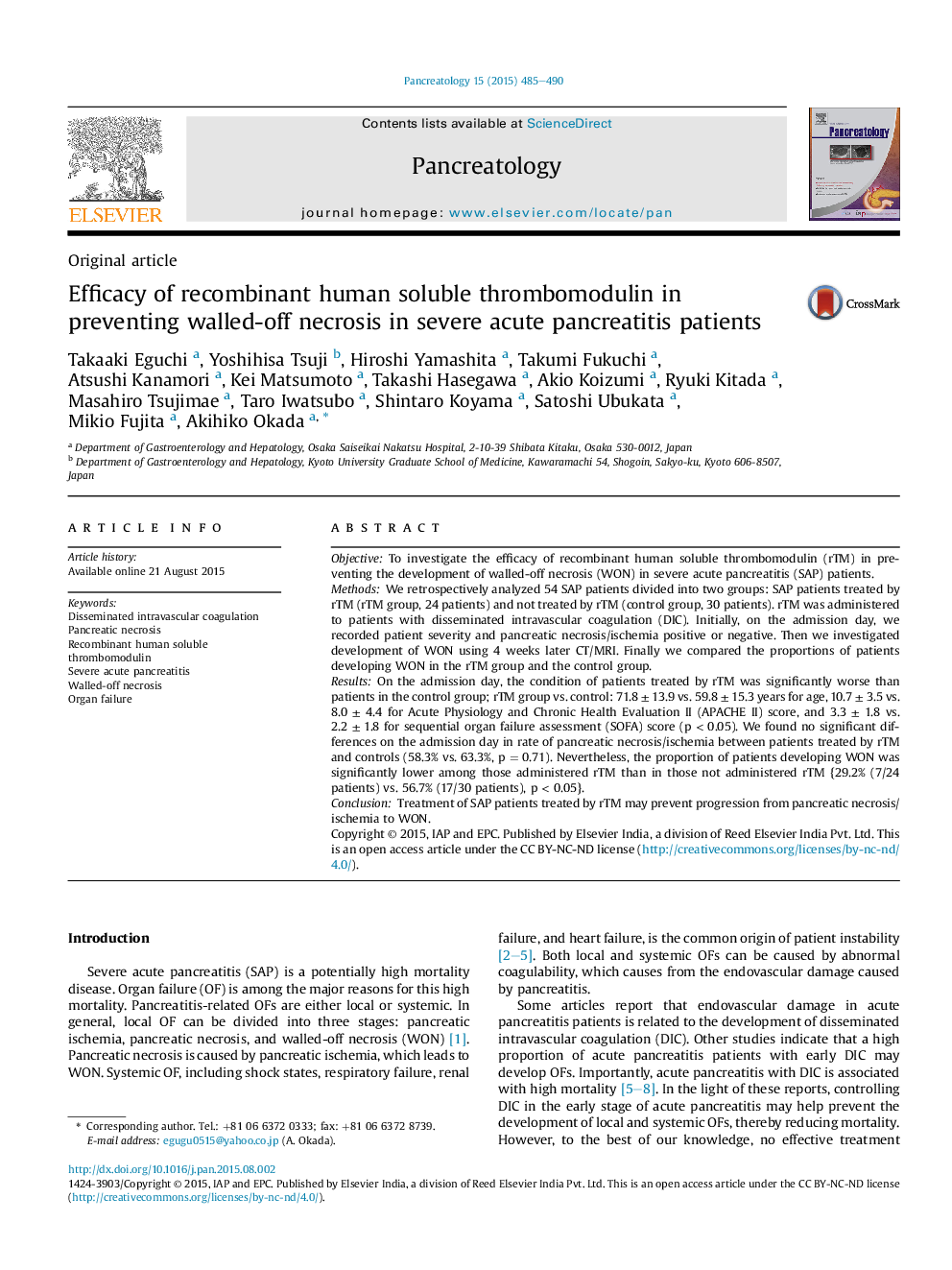| Article ID | Journal | Published Year | Pages | File Type |
|---|---|---|---|---|
| 6110697 | Pancreatology | 2015 | 6 Pages |
ObjectiveTo investigate the efficacy of recombinant human soluble thrombomodulin (rTM) in preventing the development of walled-off necrosis (WON) in severe acute pancreatitis (SAP) patients.MethodsWe retrospectively analyzed 54 SAP patients divided into two groups: SAP patients treated by rTM (rTM group, 24 patients) and not treated by rTM (control group, 30 patients). rTM was administered to patients with disseminated intravascular coagulation (DIC). Initially, on the admission day, we recorded patient severity and pancreatic necrosis/ischemia positive or negative. Then we investigated development of WON using 4 weeks later CT/MRI. Finally we compared the proportions of patients developing WON in the rTM group and the control group.ResultsOn the admission day, the condition of patients treated by rTM was significantly worse than patients in the control group; rTM group vs. control: 71.8 ± 13.9 vs. 59.8 ± 15.3 years for age, 10.7 ± 3.5 vs. 8.0 ± 4.4 for Acute Physiology and Chronic Health Evaluation II (APACHE II) score, and 3.3 ± 1.8 vs. 2.2 ± 1.8 for sequential organ failure assessment (SOFA) score (p < 0.05). We found no significant differences on the admission day in rate of pancreatic necrosis/ischemia between patients treated by rTM and controls (58.3% vs. 63.3%, p = 0.71). Nevertheless, the proportion of patients developing WON was significantly lower among those administered rTM than in those not administered rTM {29.2% (7/24 patients) vs. 56.7% (17/30 patients), p < 0.05}.ConclusionTreatment of SAP patients treated by rTM may prevent progression from pancreatic necrosis/ischemia to WON.
